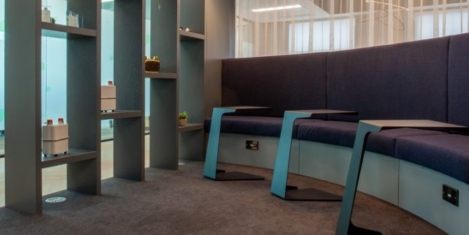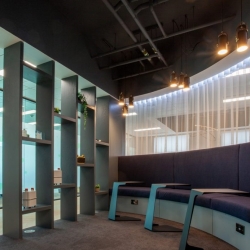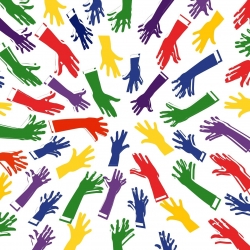To provide the best experiences, we use technologies like cookies to store and/or access device information. Consenting to these technologies will allow us to process data such as browsing behaviour or unique IDs on this site. Not consenting or withdrawing consent, may adversely affect certain features and functions.
The technical storage or access is strictly necessary for the legitimate purpose of enabling the use of a specific service explicitly requested by the subscriber or user, or for the sole purpose of carrying out the transmission of a communication over an electronic communications network.
The technical storage or access is necessary for the legitimate purpose of storing preferences that are not requested by the subscriber or user.
The technical storage or access that is used exclusively for statistical purposes.
The technical storage or access that is used exclusively for anonymous statistical purposes. Without a subpoena, voluntary compliance on the part of your Internet Service Provider, or additional records from a third party, information stored or retrieved for this purpose alone cannot usually be used to identify you.
The technical storage or access is required to create user profiles to send advertising, or to track the user on a website or across several websites for similar marketing purposes.
 According to new data from Glint, despite the odds, employees were happier at work at the end of 2020 than they were at the end of 2019, but feelings of burnout remain worryingly high. Looking at aggregated data from 9 million employee-engagement survey responses from companies around the world, Glint’s latest analysis claims that employee happiness at work rose 5.4 percent in December 2020, compared to December 2019. (more…)
According to new data from Glint, despite the odds, employees were happier at work at the end of 2020 than they were at the end of 2019, but feelings of burnout remain worryingly high. Looking at aggregated data from 9 million employee-engagement survey responses from companies around the world, Glint’s latest analysis claims that employee happiness at work rose 5.4 percent in December 2020, compared to December 2019. (more…)







 New data from real estate consultancy
New data from real estate consultancy 
 The UK COVID-19 vaccination programme is well underway. Once the over 50s, younger people with health conditions, NHS and care workers have received the vaccine, Prime Minister Boris Johnson has been clear that current lockdown restrictions could be lifted in stages with schools and business a top priority. The situation is under review, but there is an expectation that business premises could reopen as early as Easter, when a large proportion of the working age population may not have been vaccinated. That means the focus in workplaces and other multi-occupant spaces, especially those open to the public, must remain on limiting transmission to prevent the spread of
The UK COVID-19 vaccination programme is well underway. Once the over 50s, younger people with health conditions, NHS and care workers have received the vaccine, Prime Minister Boris Johnson has been clear that current lockdown restrictions could be lifted in stages with schools and business a top priority. The situation is under review, but there is an expectation that business premises could reopen as early as Easter, when a large proportion of the working age population may not have been vaccinated. That means the focus in workplaces and other multi-occupant spaces, especially those open to the public, must remain on limiting transmission to prevent the spread of 
 Research released by
Research released by 
 Businesses using artificial intelligence (AI) solutions benefit from a happier and more efficient workforce, claims new research from
Businesses using artificial intelligence (AI) solutions benefit from a happier and more efficient workforce, claims new research from 


 Research from the
Research from the 
 r workplace digital transformation and the urgent shift to remote working has seen the world experience two years of digital transformation in two months. New research from
r workplace digital transformation and the urgent shift to remote working has seen the world experience two years of digital transformation in two months. New research from 
 Over half (54 percent) of UK workers say they are more open to taking on a side hustle or freelance work since the Covid-19 pandemic, according to new research from
Over half (54 percent) of UK workers say they are more open to taking on a side hustle or freelance work since the Covid-19 pandemic, according to new research from 
 Two and a half million Brits are expected to be unemployed this year after the fall out of the pandemic. A concern for many has been how disabled people will fare with the aftermath. The unemployment rate for people with disabilities is more than twice those who are able bodied.
Two and a half million Brits are expected to be unemployed this year after the fall out of the pandemic. A concern for many has been how disabled people will fare with the aftermath. The unemployment rate for people with disabilities is more than twice those who are able bodied. 
 Investment in digital technology is set to increase UK GDP by £232bn (6.9 percent) in 2040, according to a new
Investment in digital technology is set to increase UK GDP by £232bn (6.9 percent) in 2040, according to a new 








February 16, 2021
We must seize the chance to go full circle on sustainable office design
by Joanna Knight • Comment, Environment, JK